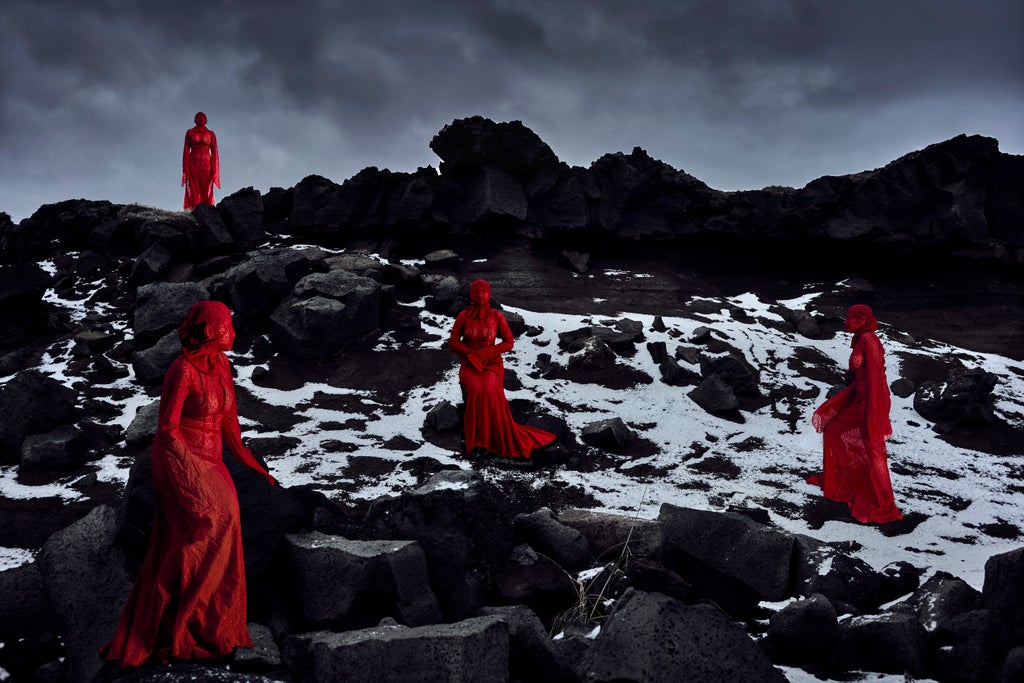
Indian transmedia artist and activist Poulomi Basu has launched a dynamic new series with Wateraid titled Sisters of the Moon, to show how a lack of clean water and toilets limits the power and potential of women and girls.
The project is inspired by the women and girls Poulomi has met through more than a decade of her previous work and includes her own experience of being raised in a patriarchal home in Kolkata, where both her mother and grandmother were child brides.
Poulomi also wanted to explore issues that affect women and girls all over the world such as gender-related violence, menstrual taboos and climate change, so rather than focus on a specific country, Poulomi chose to create a fictional dystopian world in the beautiful and barren landscape of Iceland.
She placed herself in the photographs as a way of connecting her own struggles with those of women and girls from across the global south, using her body as a canvas to confront the politics of race, representation and environmental justice.
Sisters of the Moon is being released to support WaterAid’s Thirst for Knowledge appeal, which will bring clean water, decent toilets and good hygiene to homes and schools around the world, helping ensure girls have an equal chance to learn in dignity and safety. The UK government will match public donations made by 15 February up to £2m, helping bring these vital facilities to an additional 28,000 people and 30 schools in the Bardiya district of Nepal.
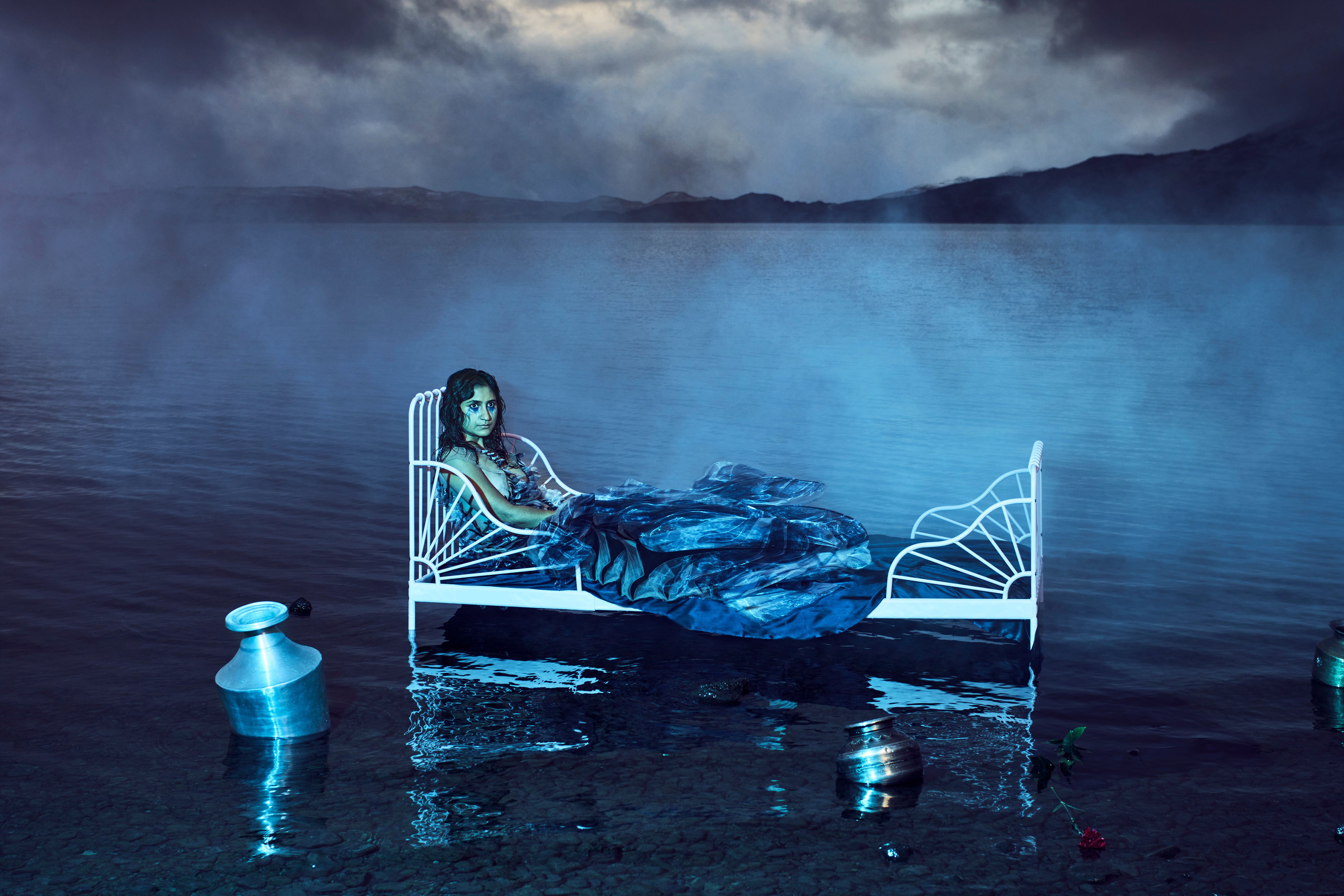
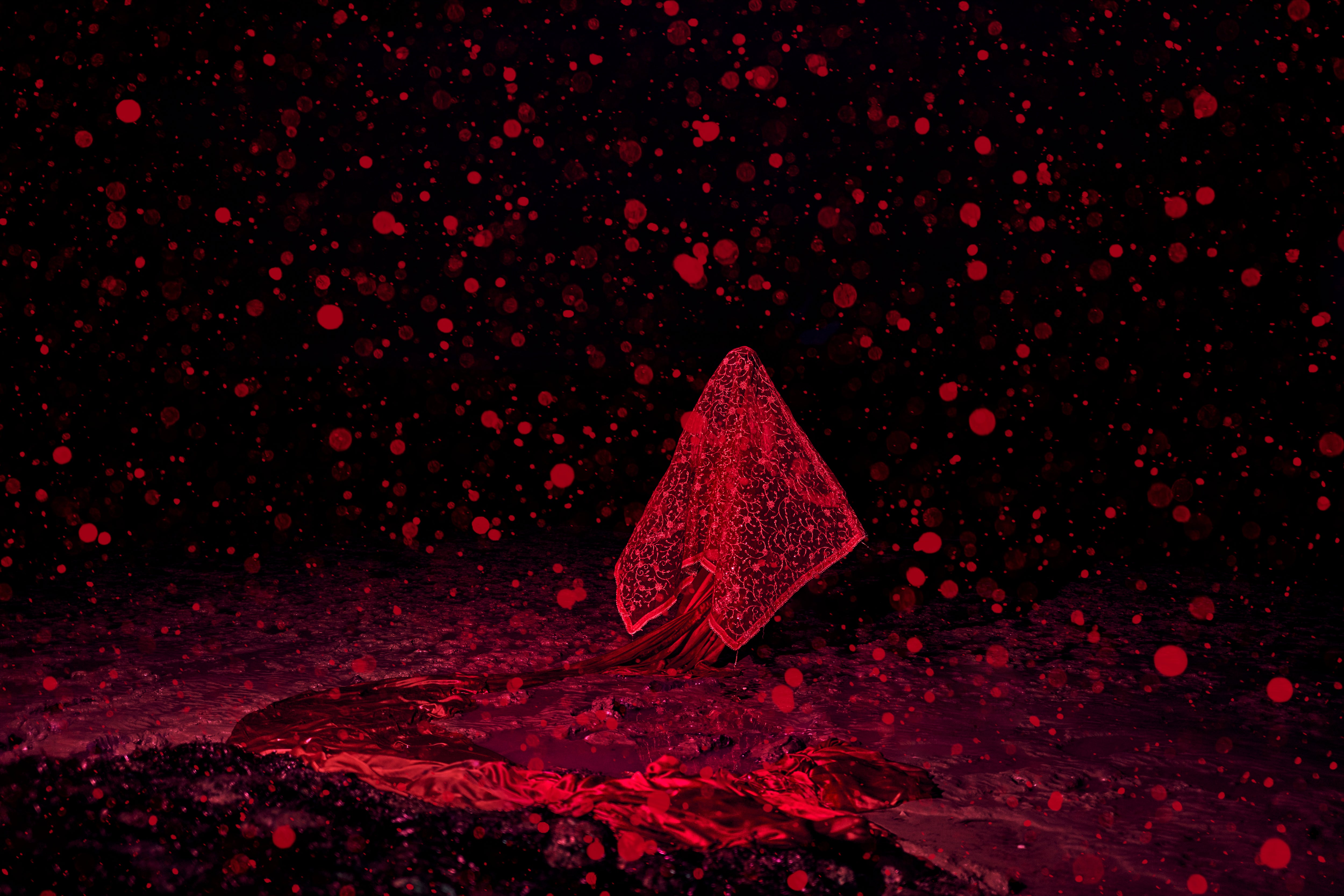
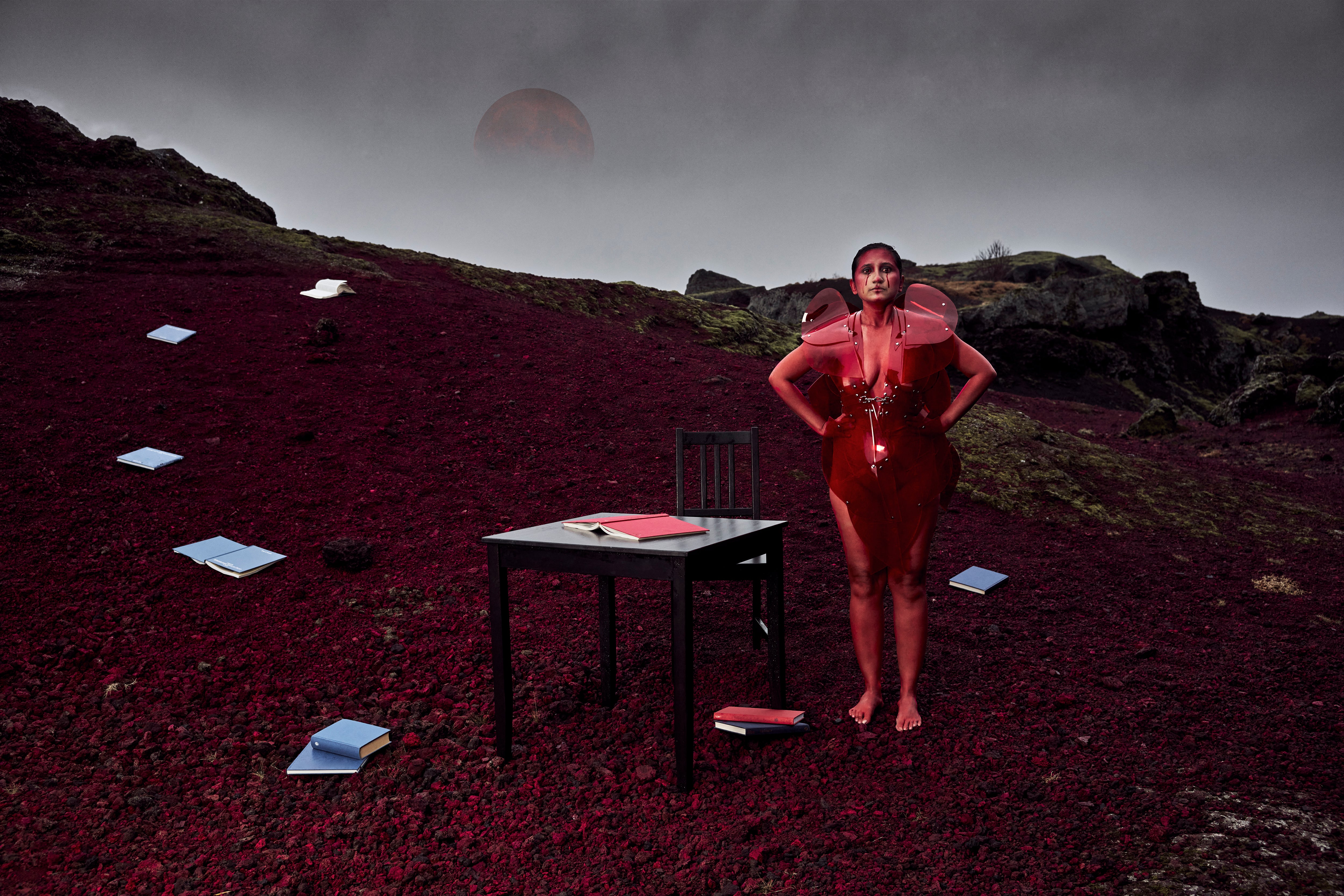
The 14 striking images include a bed submerged in water, inspired by women Poulomi met in Bangladesh who are living on the front line of climate change and whose homes were flooded, and many lost as a result of rising sea levels. Floating by the bed are water containers, highlighting how the climate crisis is a water crisis, with flooding contaminating water supplies and droughts drying them up.
One picture features a woman in a red veil walking towards a burning hut. The fiery image alludes to defiance against the practice of “chaupadi” in parts of Nepal, where women are forced to isolate during their period, when they are considered unclean.
In another photo, women are carrying water pots over a snowy, rocky terrain, reflecting the challenging journeys millions of girls make every day to collect water. One in 10 people have no water close to home, and women and girls are responsible for collecting water in four out of five households with water off the premises, often making long journeys across remote and difficult terrain, putting their safety at risk and leaving little time to go to school or earn a living.
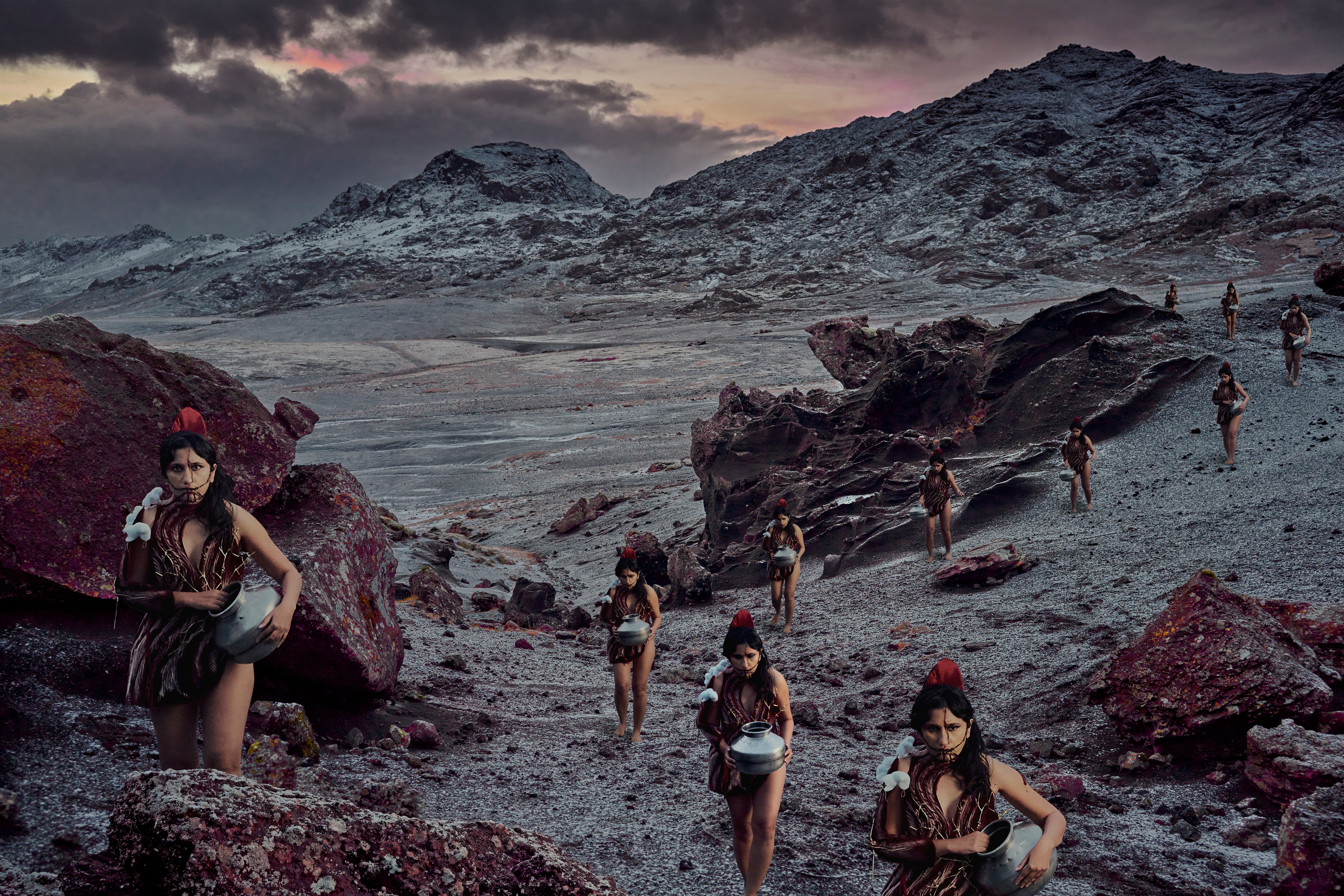
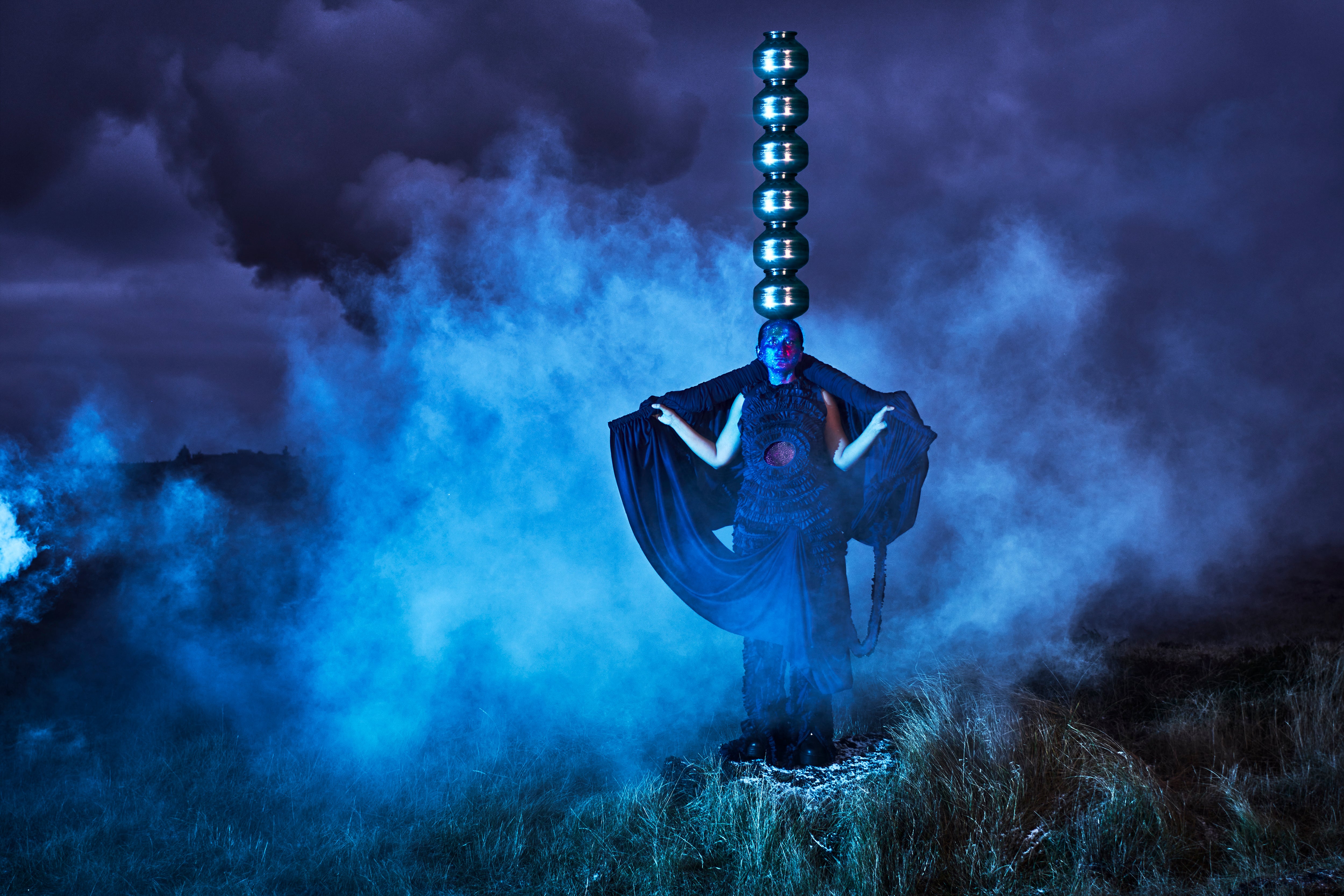
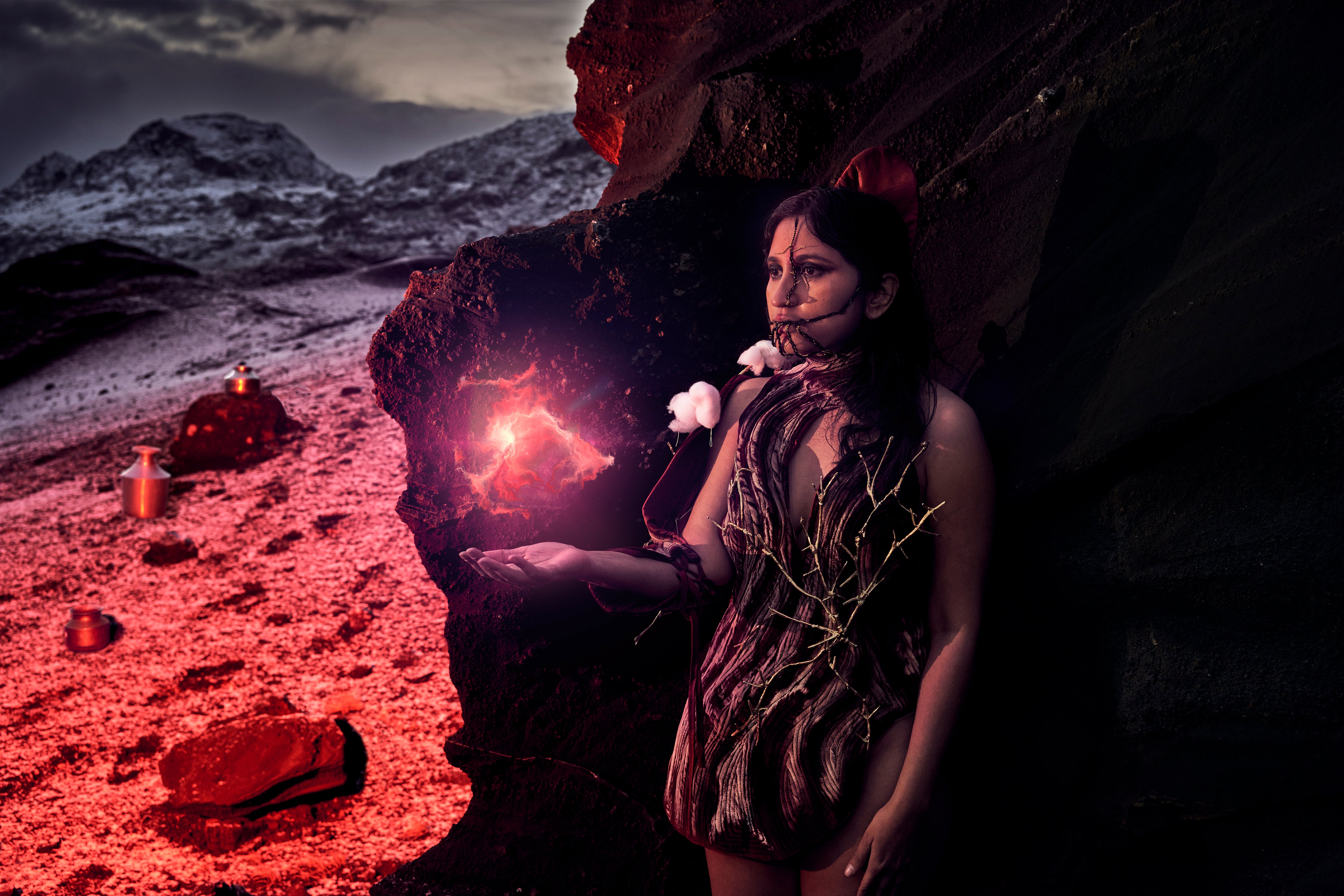
A fourth image shows a girl covered in blood with schoolbooks scattered around her, raising awareness of the one in three schools worldwide that do not have decent toilets or a basic water supply. This lack of basic facilities affects girls disproportionately, as many often miss classes while on their period if there are no decent toilets or even drop out of school altogether when they reach puberty, impacting their lives and futures.
Poulomi Basu said: “Sisters of the Moon explores our global water crisis and the challenges of environmental and ecological change, and how these intersect with gender equality. I have drawn on my past experiences working in the field and my own family life growing up in India to present an ecofeminist tale in which the women look powerful, but their real power has been curtailed and controlled.
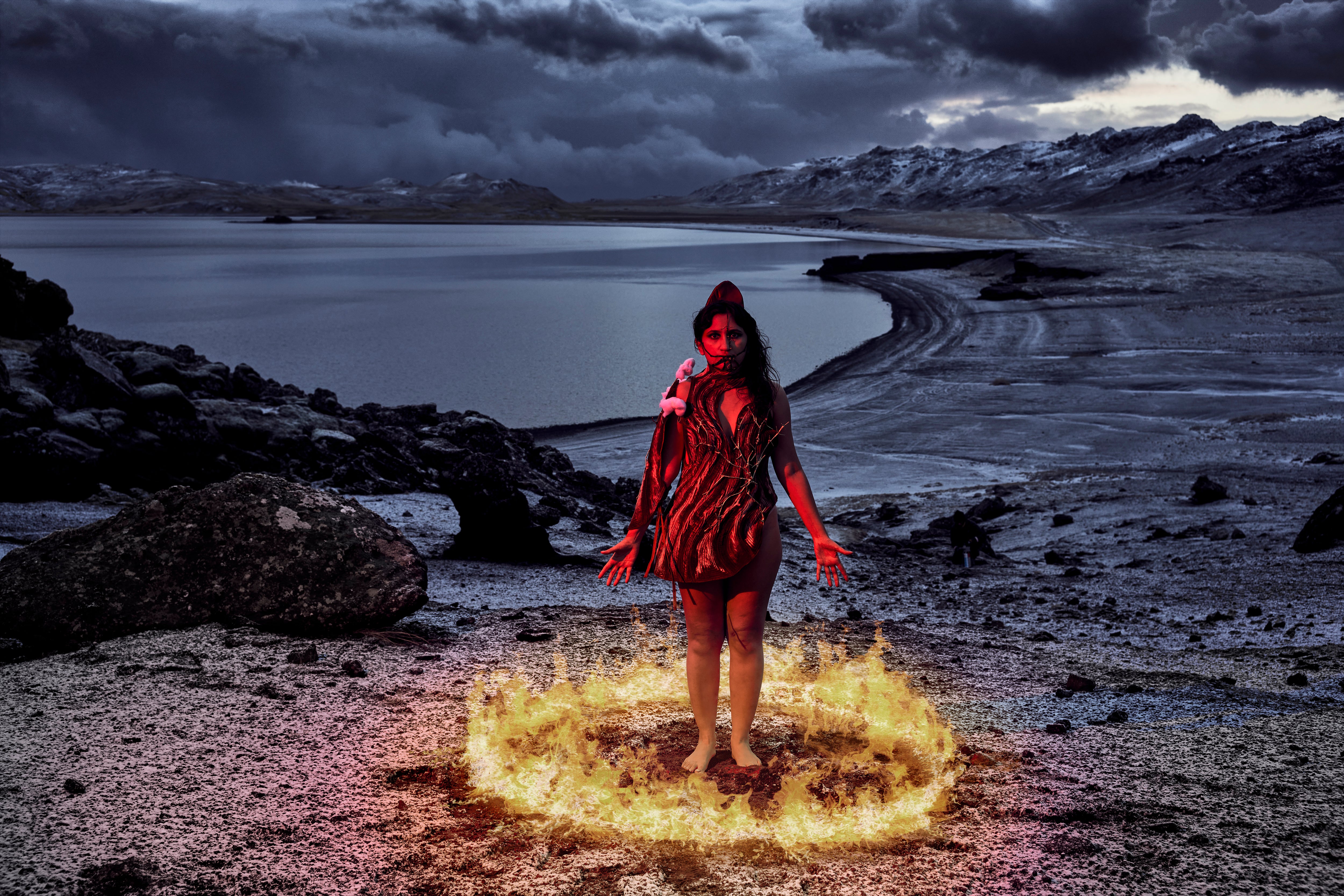
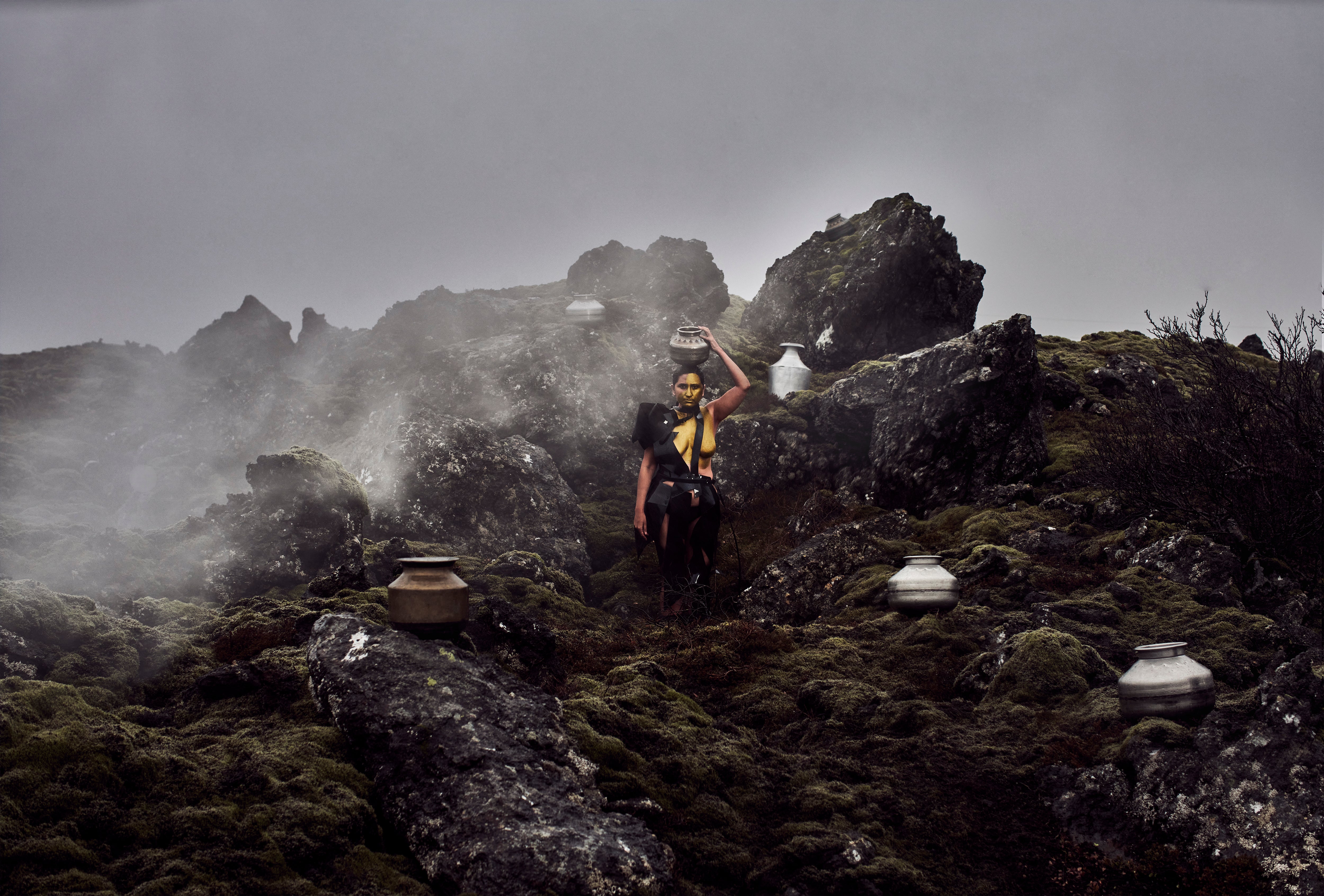
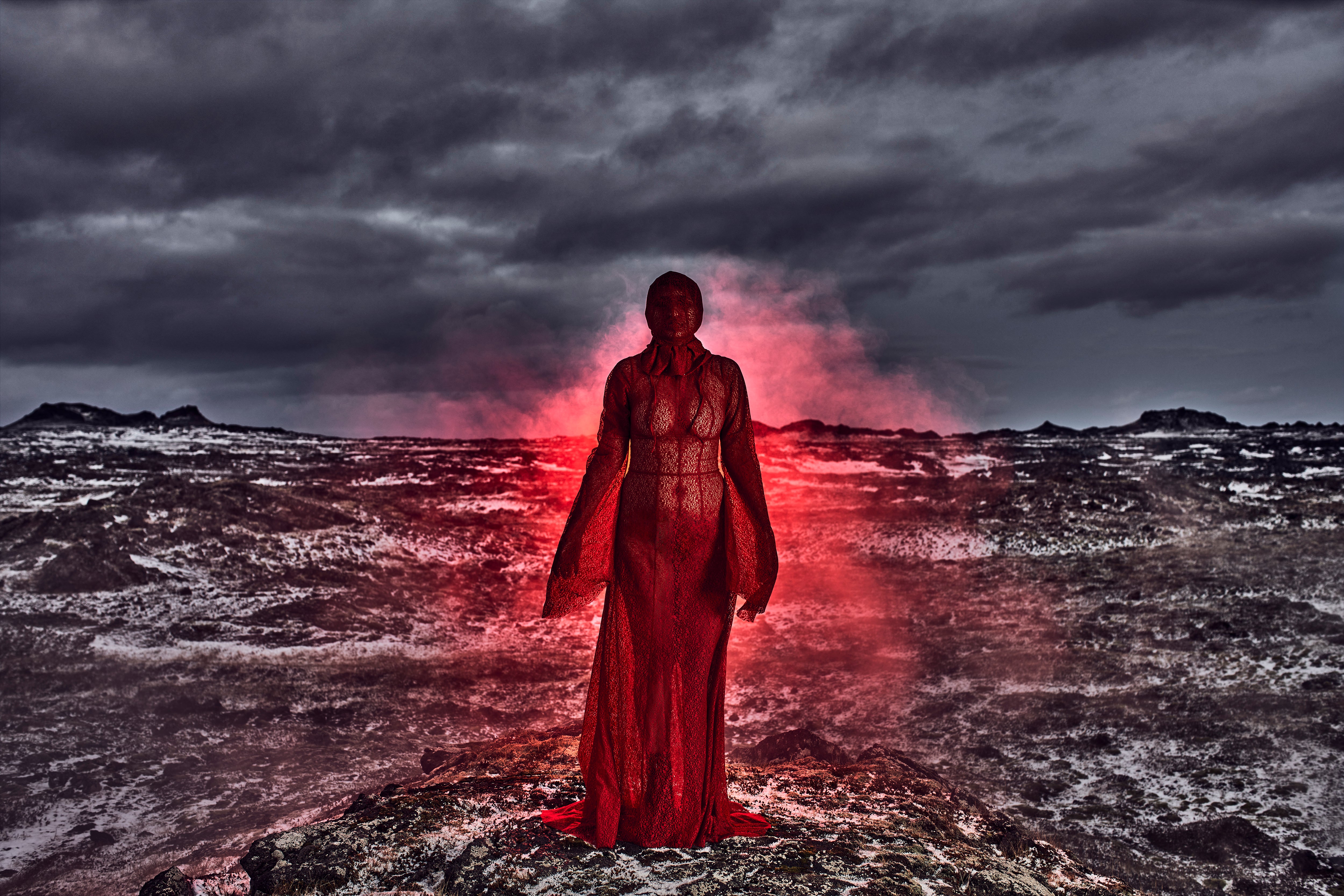
“Girls shouldn’t have to spend hours each day collecting water for their families; they should be in school studying. Menstruation should not hold them back because they do not have decent toilet facilities or proper sanitary kits. If you deny women access to water and toilets, you take away their power. Having clean water close to home and at school doesn’t just mean women and girls can spend more time in education, it means they can take charge of their lives and their livelihoods. I believe women have an amazing ability to change the world, and it’s important their basic human rights are met so they can have a voice and reach their full potential.”
For Sisters of the Moon, Poulomi worked with Edda Gudmundsdottir, who styles Icelandic singer Björk, and make-up was by Sunna Björk. The clothes she wears in the photographs were donated by designers Iris van Herpen, Jivomir Domoustchiev, Aziz Rebar and Richard Malone.
To read more visit: www.wateraid.org/uk/sistersofthemoon







